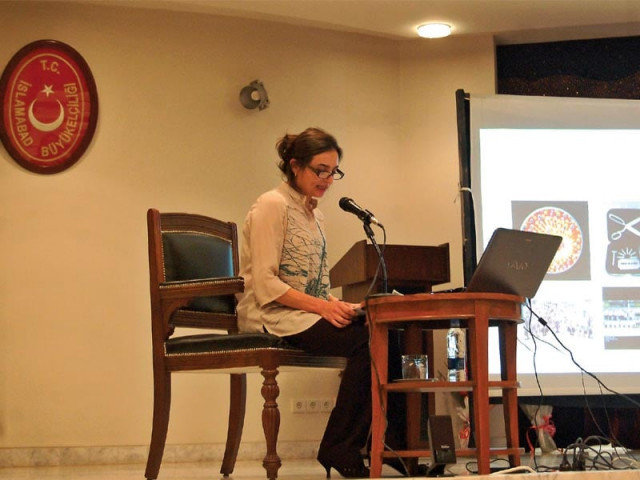Home-based women workers' rights ignored
Govt enforcement failure ignores law safeguarding rights of home-based women workers

Although the Sindh government has legislated a law to grant and protect rights of the women home based workers, a lack of implementation on the law continues to deny rights to these workers.
A consultation meeting , organized in Sukkur by the Sindh Human Rights Commission (SHRC) and Bhittai Social Watch and Advocacy (BSWA) on Saturday night, shed light over the issue, identifying bottlenecks and suggesting solutions.
The Sindh Home-Based Workers Act was legislated in 2018 to safeguard rights of the home based workers. Tens of thousands of women work in the province in the informal sectors like creating embroidery, crafting multi-coloured tapestry quilts called rilli in Sindhi language, date leaves and wheat straw, besides a range of other items. "The Act is a pioneering law in South Asia," observed Abdullah Dayo, Program Advisor at Friedrich Ebert Stiftung (FES). "We must now focus on implementing its rules to transform legal recognition into the real-world protections for women workers."
Additional Inspector General of Police Gender and Human Rights Shahla Qureshi acknowledged the law's significance, underlining the need to integrate gender protection, coordination with anti-GBV services and proactive roles by police in facilitating survivors' access to support services without procedural delays.
SSP informed about the role of Anti-Rape Crisis Cells (ARCCs) and the Gender Desks in assisting women workers. She encouraged greater coordination between police, SHRC, and CSOs for survivor-centered responses.

1724319076-0/Untitled-design-(5)1724319076-0-208x130.webp)

















COMMENTS
Comments are moderated and generally will be posted if they are on-topic and not abusive.
For more information, please see our Comments FAQ